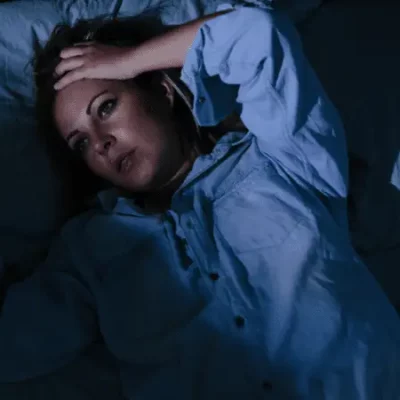Insomnia is a disorder where you find it hard to fall and/or stay asleep. You find yourself tossing and turning all night. You’re thinking of everything under the sun or perhaps just one particular thing that is bothering you. Flipping the pillow over every 5 minutes to find the cool, refreshing side which we all know is wonderful but…you still can’t sleep. It leaves you unsatisfied and leads into symptoms of low energy, low concentration, and changes in mood. Moreover, insomnia comes and goes as it pleases so it is literally a creeper. It may just hit you one night and go away the next or it might last for what feels like forever. Now you’re tired, unfocused, and moody. It’s enough to make you wonder…. Why can’t I sleep in the first place?
So, let’s drink some coffee and dive in to see if anything sounds like you or someone you know.
There are 7 categories of insomnia:
- Acute
- Chronic
- Primary
- Secondary
- Onset
- Maintenance
- Behavioral Insomnia of Childhood (BIC)
Acute Vs Chronic Insomnia
Acute insomnia occurs briefly, usually because of some sort of lifestyle change and/or stress. Think about the last time you had an important exam or a business presentation. You probably couldn’t sleep, right? You were up all night feeling the stresses and anxieties that most people do.
The good news is, these sleepless nights usually resolve themselves once the circumstance has passed.
Chronic insomnia, on the other hand, may need external treatment. This will occur three or more nights per week and last more than three months. It can be caused by:
- Stress
- Environment changes or constant travel
- Bad sleep habits
- Bad work schedules
- Certain medications
- Traumatic brain injuries
- Hormonal imbalances
- Other medical or mental health conditions
If you find yourself with chronic insomnia, the first step is to determine if it is primary or secondary.
Primary Vs Secondary Insomnia
Insomnia is considered primary only if it cannot be attributed to any other health, mental, or environmental condition.
Secondary insomnia occurs as a side effect of multiple conditions including but not limited to:
- Existing health conditions like restless leg syndrome, acid reflux, Parkinson’s Disease, arthritis, and chronic back pain.
- Existing mental illness such as depression and anxiety.
- Lifestyle choices like nicotine, alcohol, caffeine, bad sleep hygiene, and heavy meals.
Types of Insomnia
There are 3 categories of insomnia:
- Onset Insomnia is trouble falling asleep.
- Maintenance Insomnia is trouble staying asleep.
- Behaavioral Insomnia of Children (BIC) affects 25% of kids. It is broken down into 3 subsets:
- BIC Sleep Onset is associated with your child’s need to be rocked or pacified to sleep. It can also include the need to have a parent or a television present.
- BIC Limit Setting is your child consistently refusing to go to bed. They might always need a drink or another story. Anything to avoid the sandman.
- BIC Combined is a combination of the previous two.
Insomnia and Mental Health Go Hand in Hand
Sleep and mental health typically go hand-in-hand. Lack of sleep may take a negative toll on mental health, while certain mental illnesses may cause forms of insomnia. Like being tired isn’t enough, but it’s important to distinguish in order to get proper treatment.
Treatment and Therapy
If you believe you are suffering from chronic insomnia there are many different forms of treatment and aid to combat the disorder. Makin Wellness counselors will tell you, medication is not always a necessary route. So, I have included some of our favorite non-medicinal insomnia treatments and therapies below.
Dietary changes
Fortunately, when I say dietary changes, I do not mean that you need to change your entire diet. Rather, certain foods may help to combat insomnia. They can be easily incorporated into your current diet. Laura Stewart recommends tart cherries. They are a delicious source of melatonin – a hormone typically referred to as a sleep-inducer.
Likewise, foods with complex carbohydrates, such as a bowl of oatmeal, may help to trigger the body to release serotonin, which will also help you sleep.
Relaxation Techniques
Relaxation techniques may, perhaps, be one of the quickest and easiest ways to help induce sleep when you find yourself facing insomnia. Progressive muscle relaxation can be done while lying in bed before falling asleep.
To complete progressive muscle relaxation, simply begin by lying in bed. Slowly, relaxation the muscles in your head and neck, and then continue to slowly relax the rest of your muscles – working from head to toe. By the time you relax your toes, your body should feel much calmer.
Natural and Herbal Remedies
While herbal remedies may not work for everyone, they are a healthy way to fight insomnia.
Melatonin is one of the most common. This supplement can be found in pill or liquid form in many drugstores and grocery stores and works by giving the body a short-term boost in sleep-inducing hormones. So, it’s good for acute insomnia but should not be used long-term.
I also suggest the usage of lavender, which holds a relaxing effect over the body. Lavender can be used in an oil diffuser, sprayed on a pillow, taken as a form of tea, or even dropped fresh into a hot, relaxing bath.
Chamomile tea may also help to promote sleep. While it may not work for everyone, it is a healthy drink and it definitely does not hurt to try.
Cognitive Behavioral Therapy (CBT) for Insomnia
CBT is a popular therapy style for a wide range of disorders. It works to help change actions or thoughts that harm mental health and can be individualized to help each unique person. In cases of insomnia, CBT can implement a wide range of techniques to help you battle your symptoms.
You and your therapist may, for example, work to enable stimulus control. That will form a positive response to the stimulus of a bed. In this case, falling asleep.
You might also work together to implement sleep restrictions, setting certain rules for when and where you should fall asleep. When all is said and done, you will have built healthy sleep routines.
Do I need therapy for my insomnia?
Not everyone will need therapy to cure their insomnia. As said before, acute cases will go away on their own with the proper stress management and lifestyle changes. Sometimes though, this is easier said than done. We all know this to be true.
The world we live in is fast and brutal. Looking for guidance should never feel like a burden. If the above tips don’t seem to help, therapists like Alexandria Billy at Makin Wellness are providers trained in the necessary techniques to help you finally rest your head.
If you feel your insomnia is becoming chronic, please do not wait. Call a counselor today at (412)-532-1249.
Happiness is only a good nights sleep away.

Research Psychology Intern | Makin Wellness, Downtown Pittsburgh
Events Coordinator and Advocate | PPU Strong Women, Strong Girls
Mentor and Academic Events Coordinator | PPU Honors Student Organization








